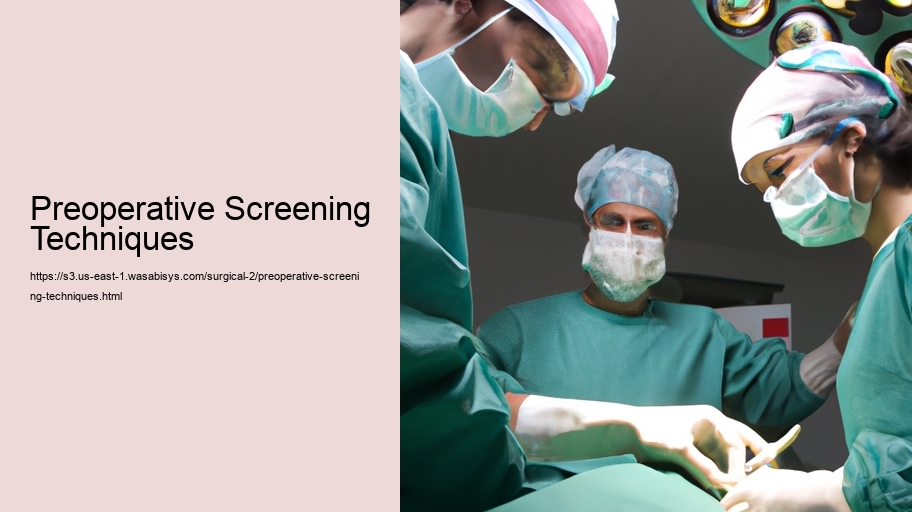Preoperative Screening Techniques: Ensuring Safety and Success in Surgery
Surgery is a critical intervention aimed at correcting medical conditions, repairing injuries, or enhancing the quality of life. To ensure the safety of the patient and the success of the surgical procedure, preoperative screening is an essential step that cannot be overlooked. Preoperative screening techniques involve a series of evaluations and tests that assess a patient's readiness for surgery and anesthesia, identify potential risks, and guide the perioperative management plan.
The screening process begins with a comprehensive medical history, which is the cornerstone of preoperative assessment. This includes a detailed account of the patient's past medical and surgical history, current medications, allergies, family history of diseases, and any adverse reactions to anesthesia. A thorough history not only uncovers underlying health issues that could complicate surgery but also assists in formulating a personalized anesthetic plan.
Following the medical history, a physical examination is conducted, focusing on the patient's overall health status and specific organ systems that could affect surgical outcomes. The cardiovascular and respiratory systems receive particular attention due to their critical role during surgery and anesthesia. For example, undiagnosed heart murmurs or lung conditions could significantly impact a patient's ability to tolerate surgery and recover postoperatively.
Laboratory tests are another fundamental component of preoperative screening. Routine tests typically include a complete blood count (CBC), electrolyte panel, coagulation profile, and renal function tests. These tests help identify issues such as anemia, electrolyte imbalances, or impaired kidney function, which could affect the patient's response to surgery and anesthesia. Depending on the patient's history and the type of surgery, additional tests such as liver function tests, glucose levels, or specific diagnostic tests like cardiac stress testing may be required.
Imaging studies are also an important aspect of preoperative screening. Chest X-rays, electrocardiograms (ECGs), and echocardiograms are often performed to assess the patient's lung and heart health. For surgeries involving specific anatomical areas, targeted imaging such as ultrasound, CT scans, or MRIs may be necessary to provide surgeons with a clear picture of the operative field and any potential challenges they may encounter.
Risk assessment tools are frequently used to quantify the patient's risk of perioperative complications. The American Society of Anesthesiologists (ASA) Physical Status Classification System is a widely recognized tool that categorizes patients based on their overall health status, providing a standardized way to assess surgical risk. Other risk indices, such as the Revised Cardiac Risk Index or the Goldman Criteria, are used to evaluate cardiac risk in patients undergoing non-cardiac surgery.
An essential part of preoperative screening is the assessment of the patient's mental health and social support systems. Psychological factors such as anxiety, depression, or cognitive impairment can influence the patient's recovery and compliance with postoperative instructions. Social factors, including the availability of caregivers or access to postoperative resources, are crucial for planning the patient's discharge and ensuring a safe recovery environment.
Finally, preoperative screening includes patient education and shared decision-making. Patients should be fully informed about the risks, benefits, and alternatives to the proposed surgery. They should also be educated about what to expect before, during, and after the procedure, including pain management, postoperative care, and activity restrictions. This ensures that patients are active participants in their care and can make informed decisions about their health.
In conclusion, preoperative screening techniques are a vital part of the surgical process. By thoroughly evaluating a patient's health status and potential risks, healthcare providers can optimize the surgical plan, anticipate and manage complications, and contribute to a successful surgical outcome. The goal of preoperative screening is not only to facilitate a smooth surgical experience but also to promote the patient's overall well-being and recovery. As medical knowledge and technology advance, so too will the precision and effectiveness of preoperative screening, further enhancing the safety and success of surgical interventions.
